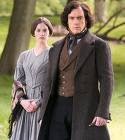One of the most pronounced uses of laughter in literature to develop theme and propel plot is in John Gardner’s novel Grendel. In its exploration nihilism and its causes, Gardner’s novel uses laughter to symbolize superiority, a feeling that becomes a major excuse for the monster’s abandonment of meaning and surrender to nihilism.
By tracking laughter throughout Grendel, one can see clearly how the adolescent’s inability to find a sense of belonging, in tandem with exposure to superior, self-isolated figures, brings about Grendel’s belief in his own superiority, and thus his disparaging thoughts of humans and the meaning that they create.
After Grendel realizes that he is not in complete control of his life and is let down by both his mother and the humans that he tries to befriend, the confused monster encounters the goldworker, a “lean, aloof, superior man,” who sets himself apart and “never spoke to the others except to laugh sometimes – ‘Nyeh heh heh.’” This superior laugh is echoed by the dragon later in the novel, who is another supercilious figure that directly belittles the humans by speaking ironically of “man’s cunning mind” and the “click click click” of his mechanical nature. So much did these haughty figures, with their disdainful laughter, impress upon the lonely outcast that, upon finding himself impenetrable to the human swords, “the grim laughter came pouring out [of him], as uncontrollable as the dragon’s laugh.” This final outburst convinces Grendel of his own superiority, linking him to both the goldworker and the dragon, and raising him above the human’s useless meaning making, effectively plummeting him into a state of nihilistic despair.
And for tracking other motifs in Grendel, check out the awesome Grendex!
Tuesday, June 2, 2009
Subscribe to:
Post Comments (Atom)










No comments:
Post a Comment